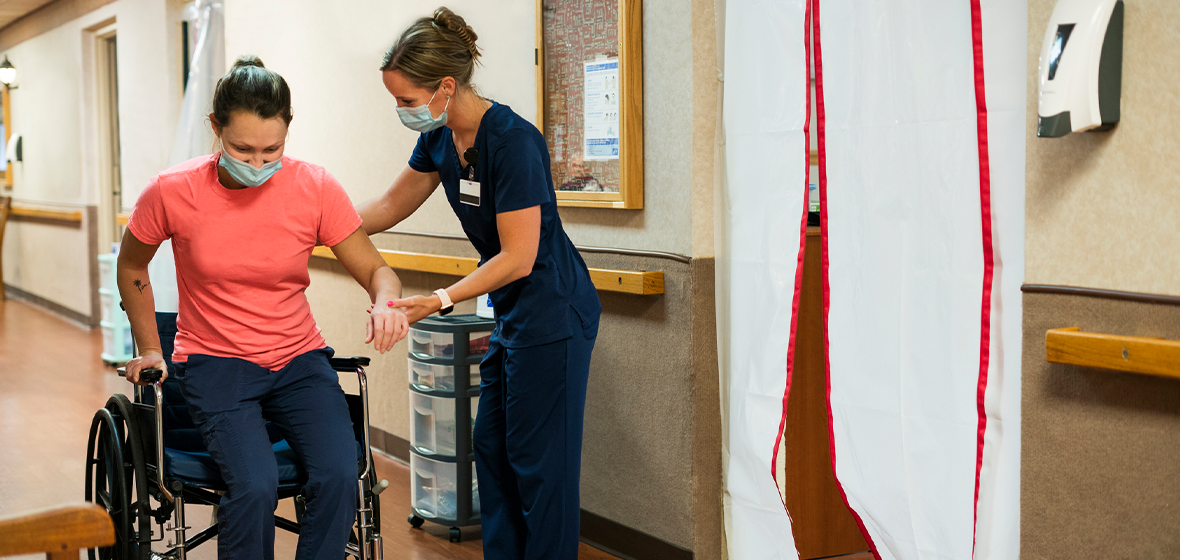
To someone outside of the medical field, it may seem like all nurses have the same roles and responsibilities. Nurses take your blood pressure, check your temperature and prepare you to see your provider, but just like other health care professionals, nursing roles can have a broad or narrow focus. There are many nursing specialties and each nurse experiences a unique set of tasks and routines depending on what kind of services their health care facility provides.
Rehabilitation (rehab) nurses are one of many health care professionals that experience a distinct set of patients and job duties than nurses in a typical clinical setting, like the emergency room or intensive care unit.
Rehab nurses work to help people with disabilities, chronic illnesses, those in recovery from an injury or medical procedure to obtain an optimal level of health and activity and adapt a new, functioning lifestyle. They are required to be proficient in all medical and surgical nursing duties, as well as restorative nursing care.
In cooperation with the therapy team, the rehab nurse aides in administering care that provides an opportunity for the patient to practice techniques and strategies learned in physical or occupational therapy. Restoring function is a primary role of the rehab team and the nurse is a key component of this goal.
For their daily tasks, rehab nurses must develop knowledge and skills associated with trauma, brain injury, spinal cord function and loss of function, respiratory care, trachs, vents and other chronic health conditions and their complications. They require a very complex and wide array of skills to meet the unique needs of each patient.
Rehab nurses work to guide and implement the return to function of major body organs and systems, like the bowel and bladder, in collaboration with the physician and therapy team. They also manage behaviors related to stroke and brain injury, requiring great patience and skill to de-escalate and re-direct treatment plans to achieve goals and promote independence.
Time management in inpatient rehab is imperative as nursing care is often delivered in cooperation with a patient’s several hours of intensive therapy administered five days per week. In addition, patient and caregiver training and education are paramount to independence following a short (one to two week) inpatient stay.
 The rewards of rehab nursing are unique. Rehab nurses get to see a patient recover from life-changing illnesses and injuries and return to their highest level of functioning. Nothing is more rewarding than to be a part of someone’s story.
The rewards of rehab nursing are unique. Rehab nurses get to see a patient recover from life-changing illnesses and injuries and return to their highest level of functioning. Nothing is more rewarding than to be a part of someone’s story.
To learn more about the rehab services and careers available at UofL Health, contact the UofL Health – Frazier Rehabilitation Institute or check out the available opportunities on our careers page for more information.









